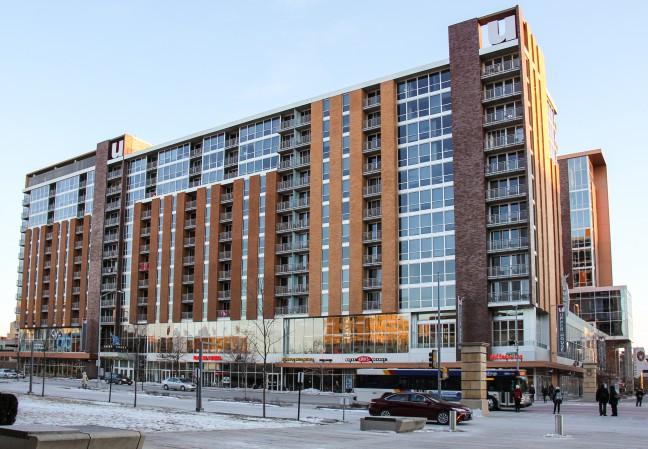A bill that would allow landlords to serve tenants eviction notices for criminal activity is headed to Gov. Scott Walker’s desk, but some some say it could lead to more evictions for college renters and contribute to student homelessness.
The bill includes a one-strike provision, in which landlords could serve five-day eviction notices for anything considered “criminal activity.” Landlords must specify the grounds for eviction in the notice, and tenants would have the right to contest the eviction in court.
But Ald. Mike Verveer, District 4, said the definition of “criminal activity” in the bill is too broad and would allow landlords to evict tenants for whatever they deem to be “criminal,” even if it is as minor as a noise complaint. For college renters, common activities such as noisy parties or smoking weed could be grounds for eviction, he said.
“Many college students engage in the recreational use of certain illegal drugs, specifically weed,” Verveer said. “In an extreme case, if landlords are able to see a bong or a pipe in plain view or smell it, this automatically means someone is engaged in illegal activities and could be evicted for it.”
Proposed one-strike landlord-tenant policy could bust your party
The change in eviction law is particularly concerning for University of Wisconsin college renters, because it is typical for students to move out of residence halls past freshman year, Verveer added.
But Rep. Allen Scott, R-Waukesha, said the bill will ensure a safe community by tightening up laws and allowing landlords to evict dangerous tenants. Scott said the bill’s biggest advantage is it relates to criminal activity.
“The bill is a good faith effort to help people comply with the law,” Scott said. “If there are one or two people engaging in criminal activity in an apartment building, it can make the whole building feel unsafe.”
Under current law, landlords are only allowed to present tenants with a warning to stop engaging in criminal activities for 14 days, Scott said. In those 14 days, the tenant has a “right to cure” the behavior.
If the tenant commits the crime again within those 14 days, Scott said, it is grounds for conviction, but tenants can engage in the same dangerous activities again once the 14 days expires. Landlords have no way to kick out dangerous tenants, he said.
But Heidi Wegleitner, Legal Action Wisconsin attorney, said the bill would make it too easy for landlords to evict tenants. The five-day eviction notice with no right to cure means the tenant has no right to fix the alleged lease violation and must leave the premises, she said. This could contribute to student homelessness, she added.
“I think this could have large impacts on homelessness for students, families and children,” Wegleitner said. “We already have a serious homeless problem in the state and you know this is certainly going to make it rise in my opinion.”
This provision also has consequences for victims of domestic violence, stalking or sexual assault because the state of Wisconsin does not provide legal protection for their family members, Wegleitner said. If a sexual assault incident were to happen to an individual at their relative’s house, victims would have to choose between themselves being helped or their relatives getting evicted, she added.
The bill would also address “squatters” who live in landlord’s properties without permission by allowing landlords to classify them as trespassers and kick them out. Wegleitner said this could lead to guests getting kicked out of their friends’ apartments when the tenant is not present.
There has been a large influx of bills changing landlord-tenant laws in past years, Ald. Zach Wood, District 8, said. He said it is “unreasonable” to expect students and other Wisconsinites to keep up with the changes. Wood said this also erodes local control by preventing cities and towns to have their own ordinances over rental properties.
But Scott said it is more important for landlords to be able to keep their apartment buildings safe.
“Everyone requires a safe and secure environment to live in,” Scott said.

















